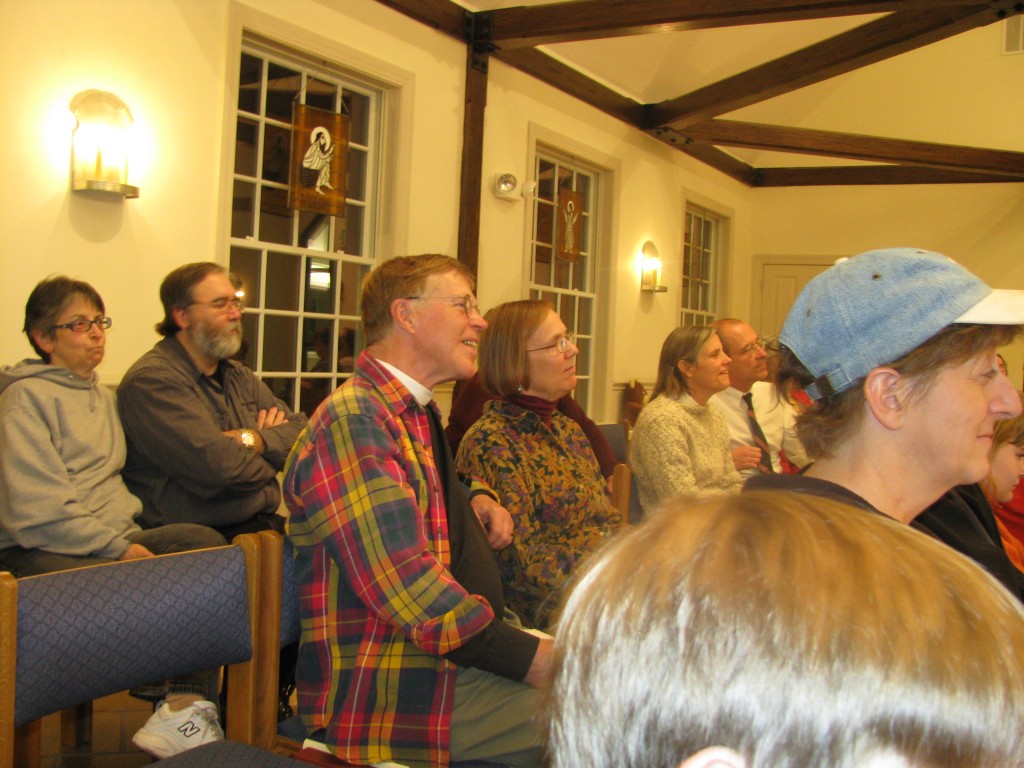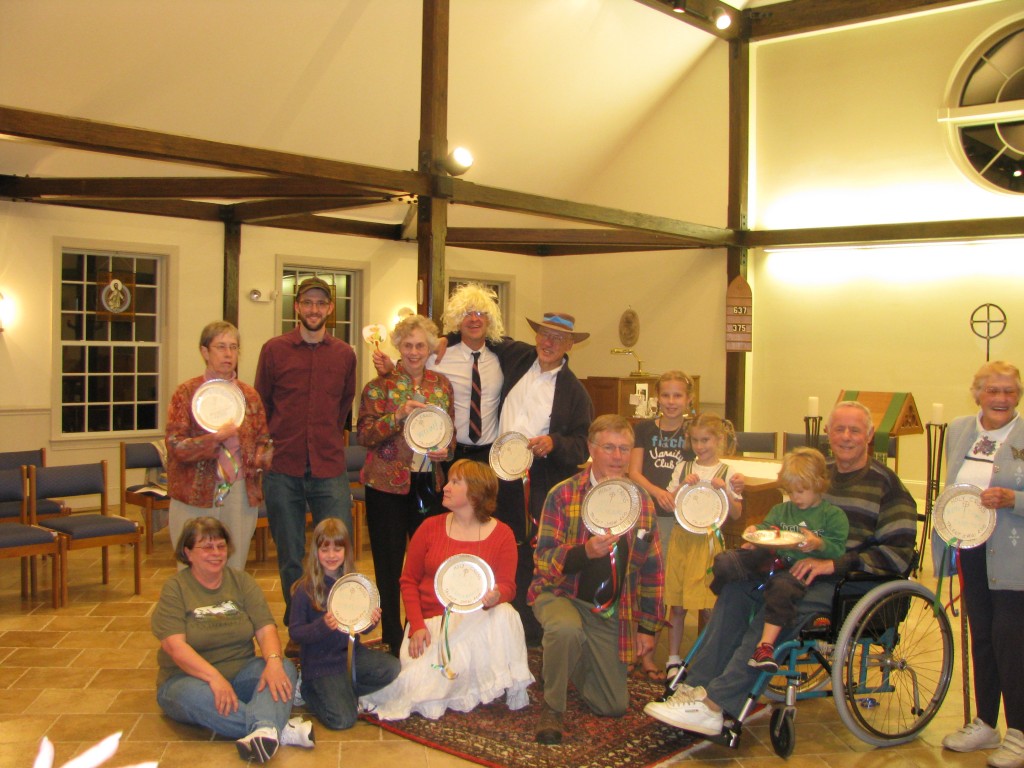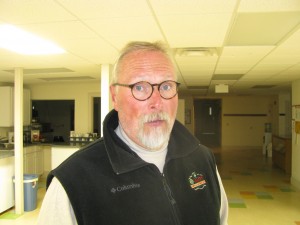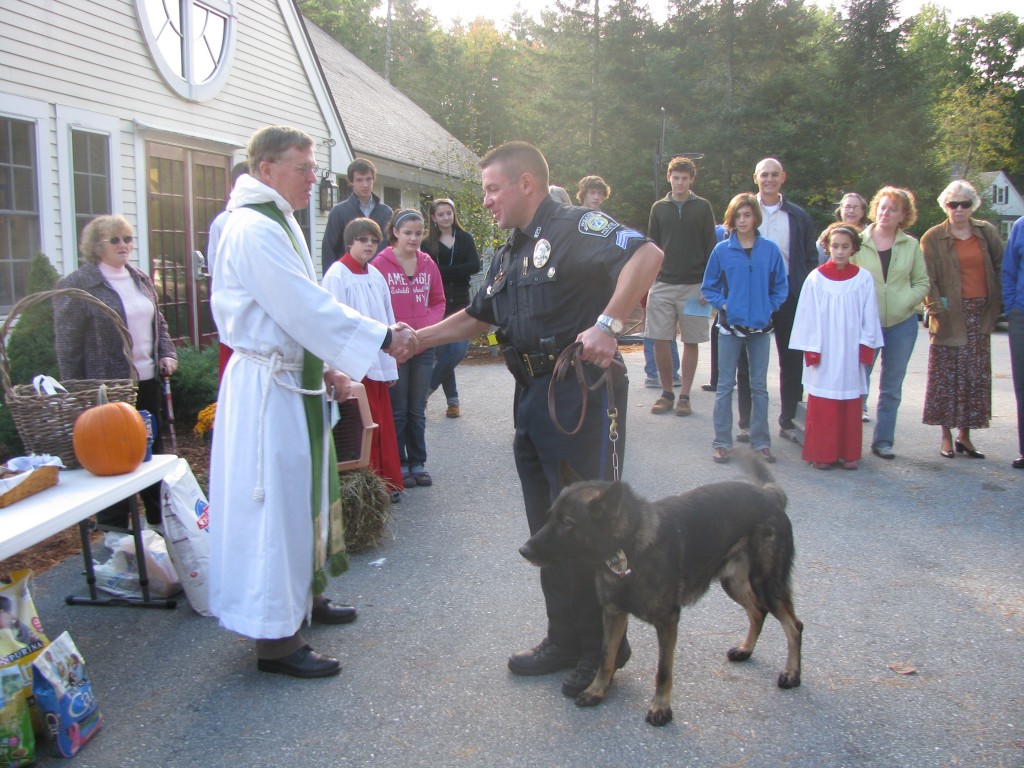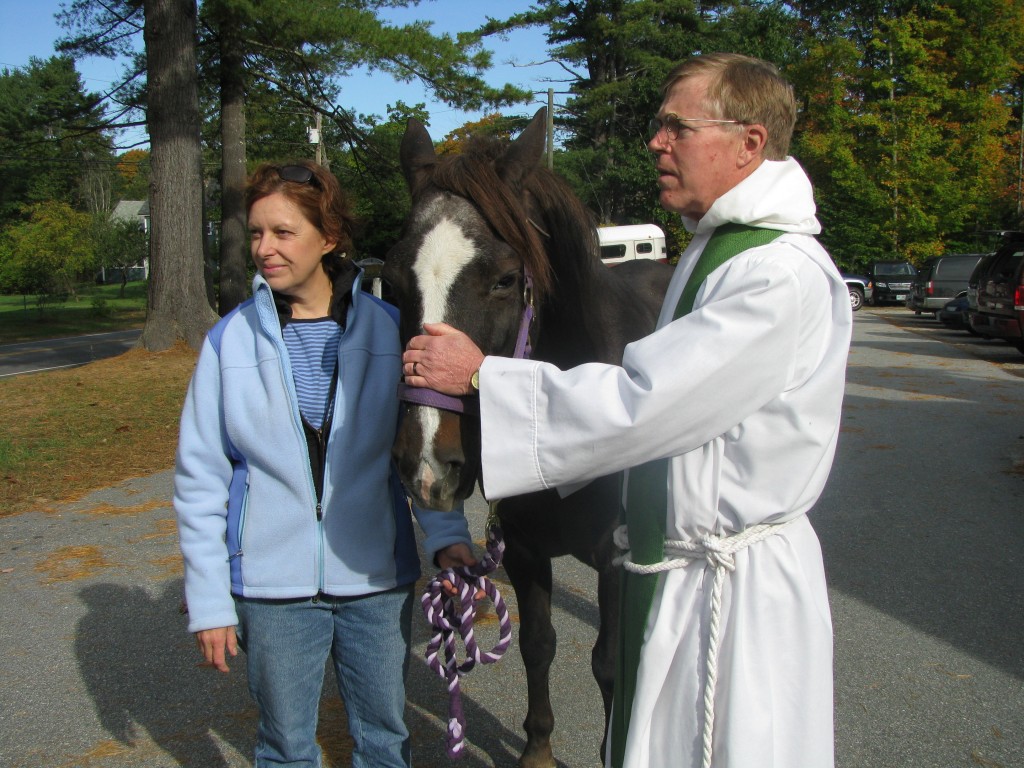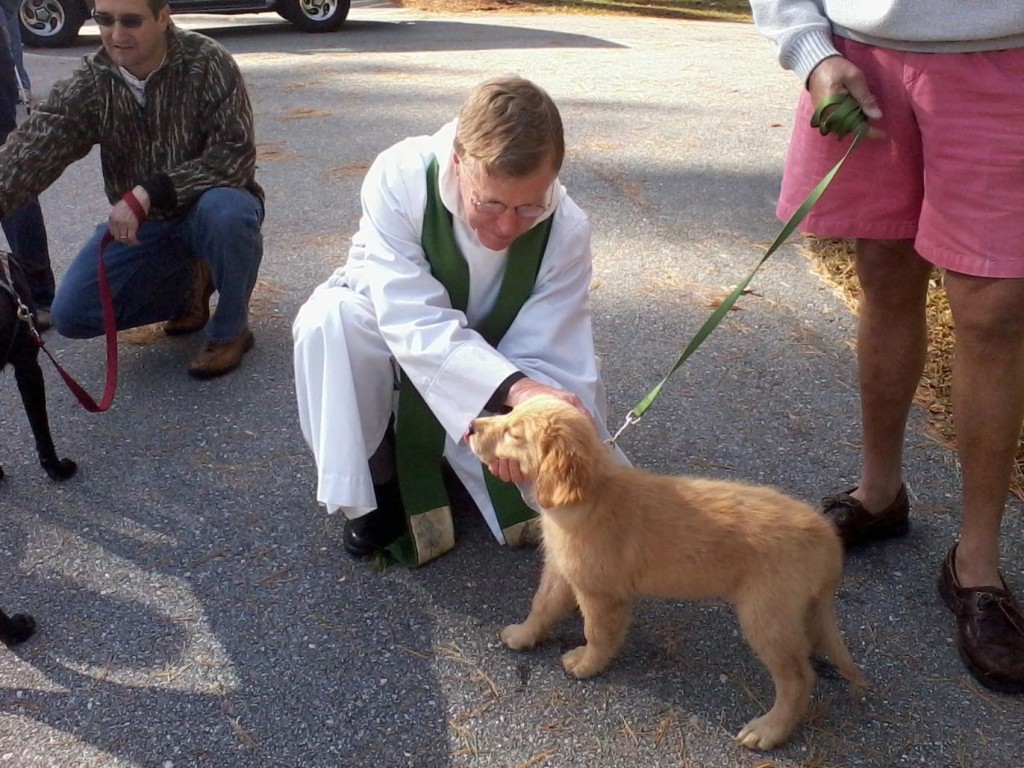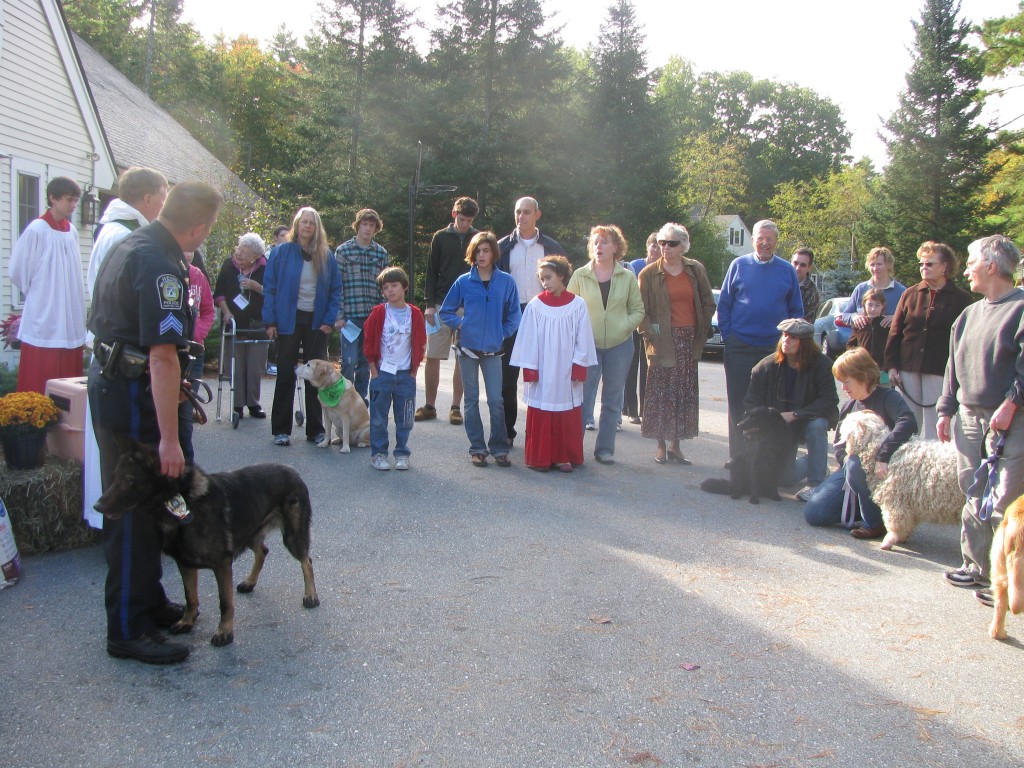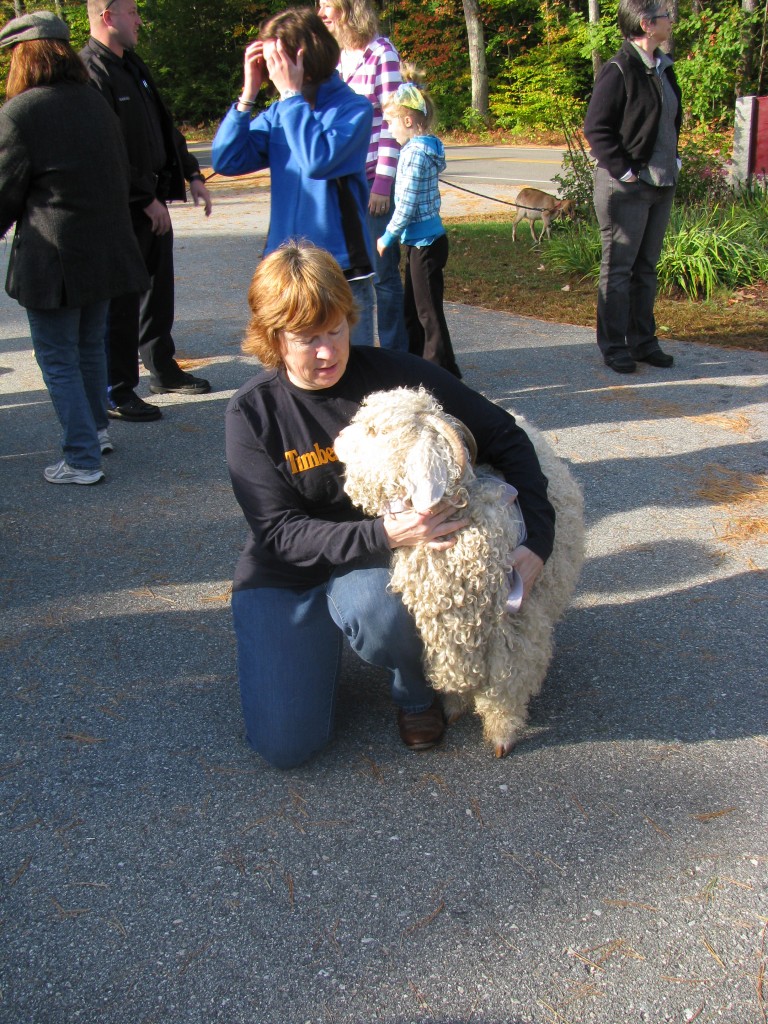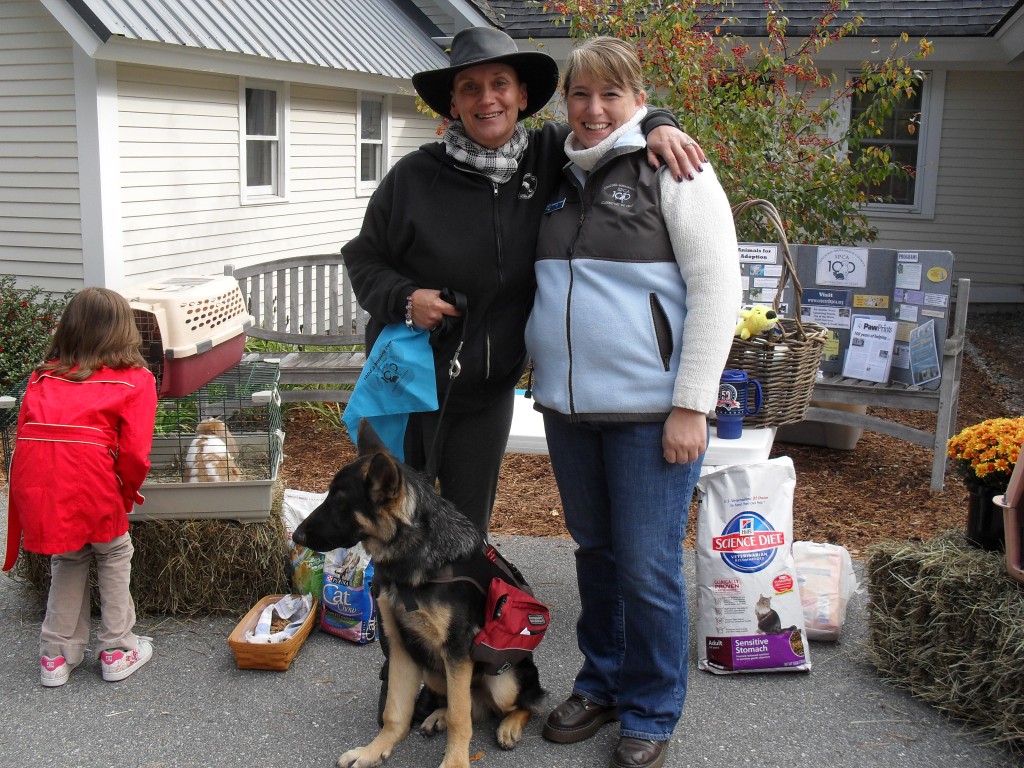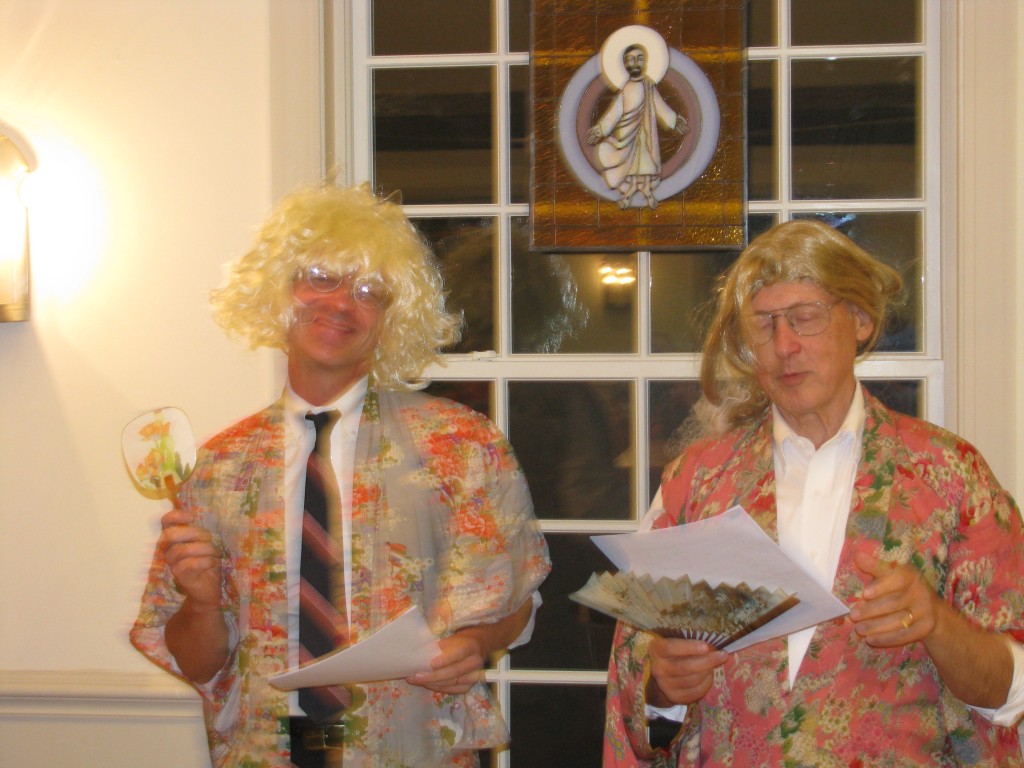
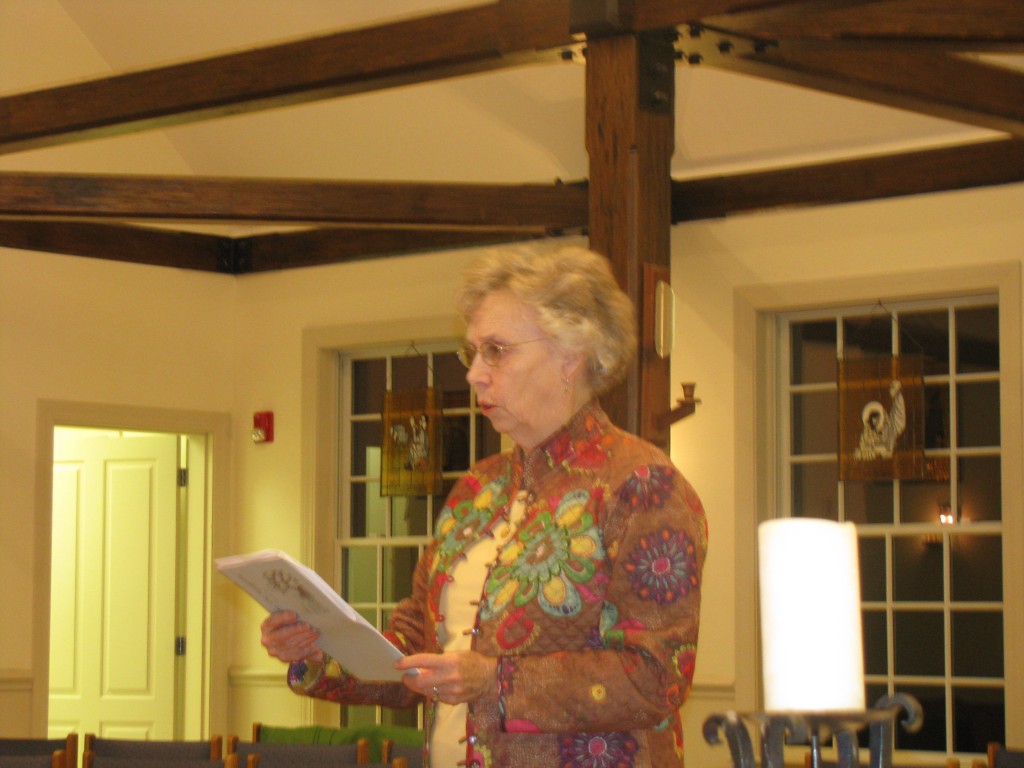
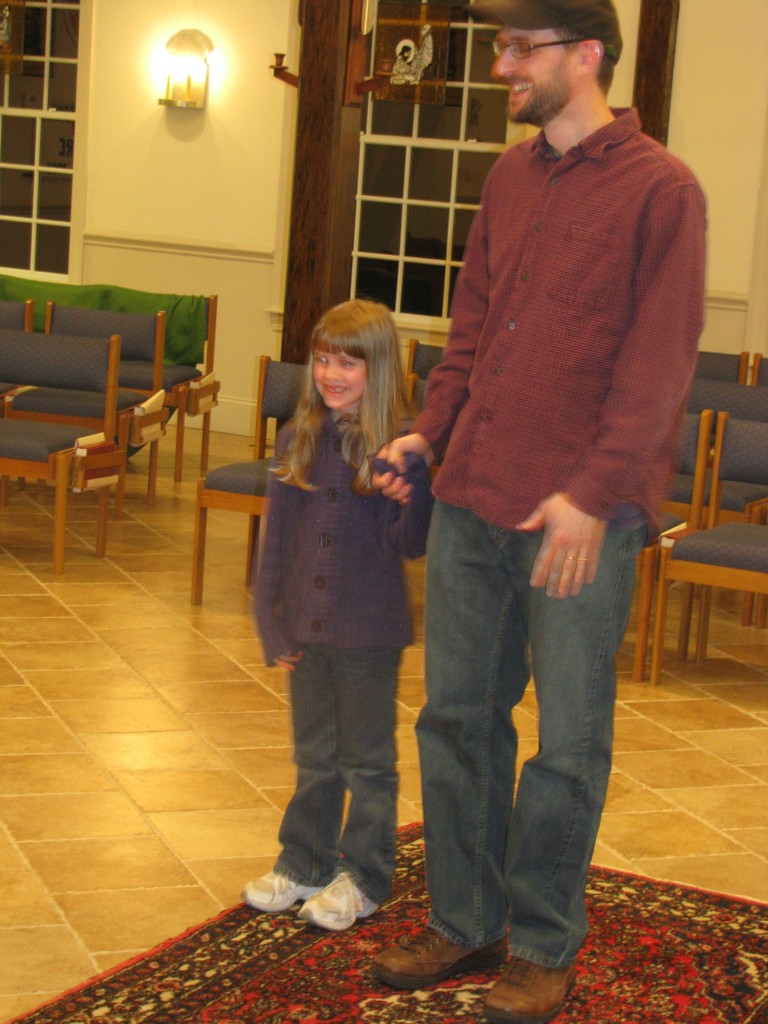
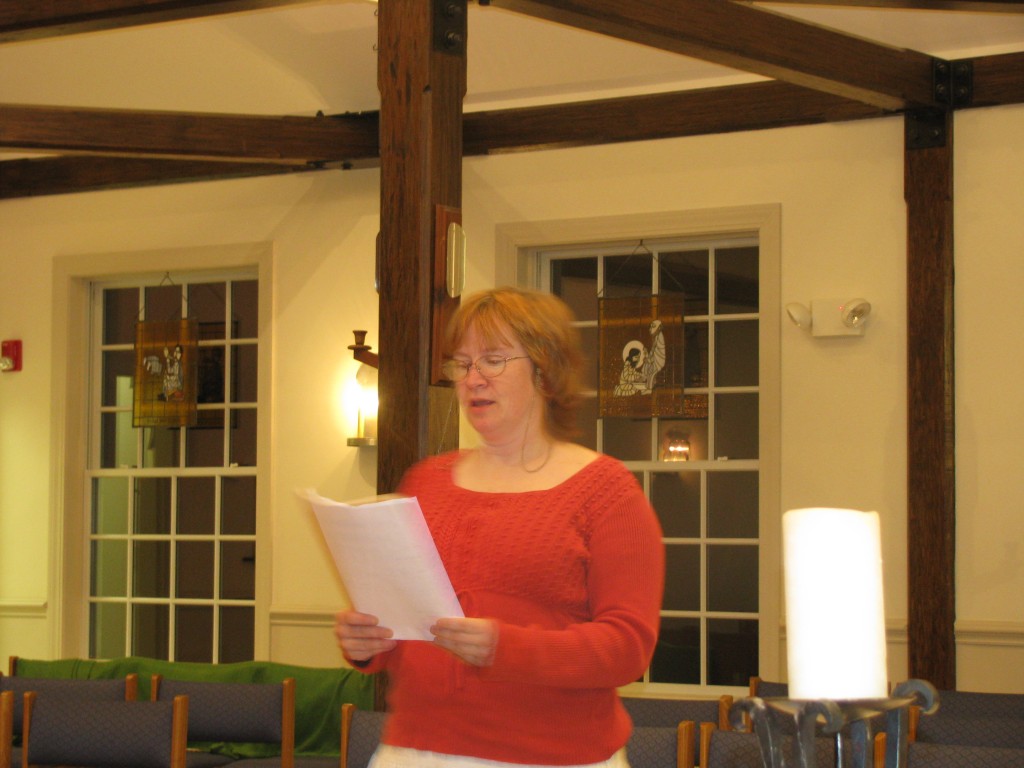
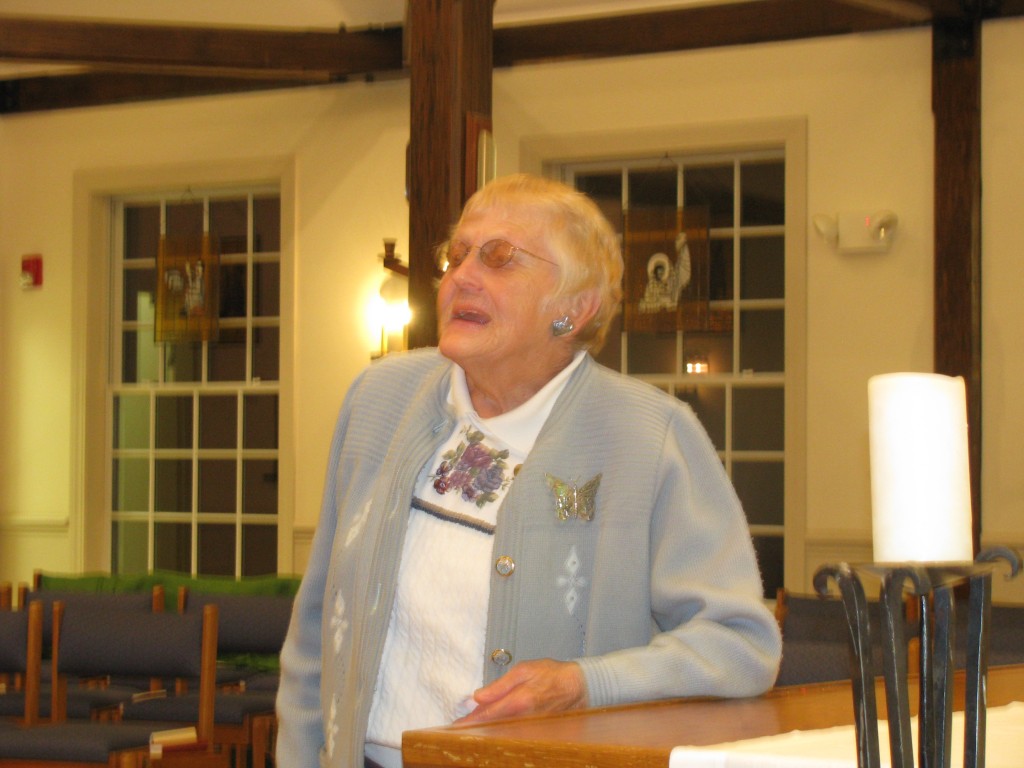
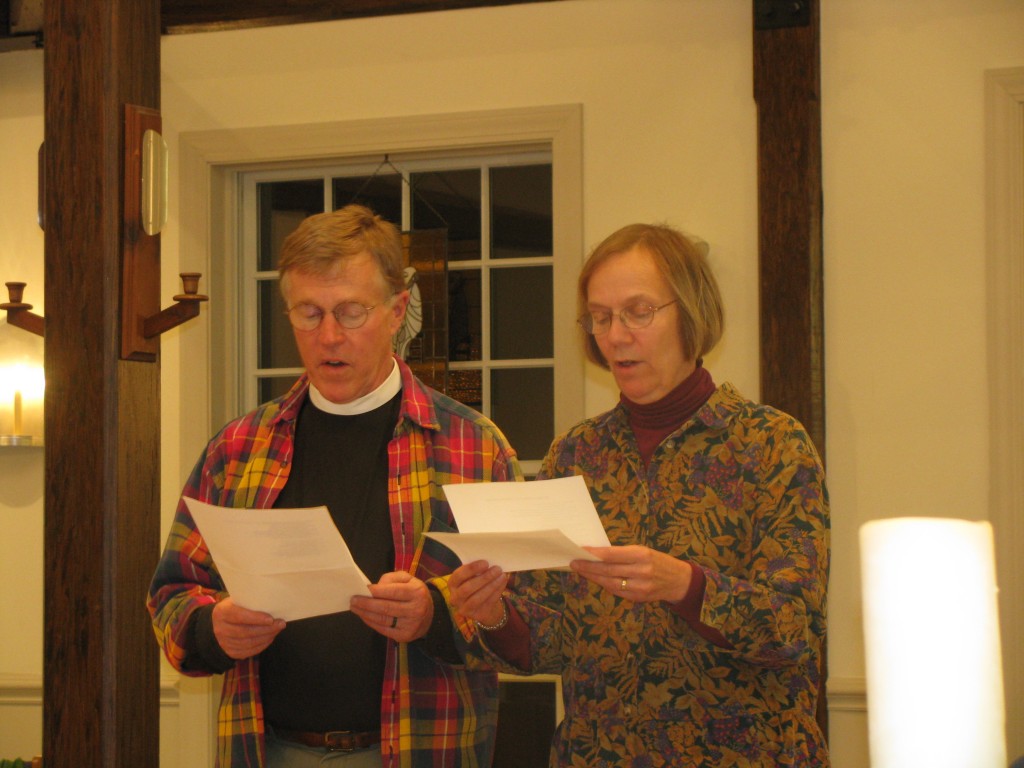
Here are the lyrics of John and Anne’s song, a tribute to Holy Cross Church through the years:
WE SING A SONG OF A CHURCH IN WEARE
We sing a song of a church in Weare, —-
               built in eighteen ninety- two,
by farmer folk who came to pray to the Lord they loved and knew.
Some were named Buxton and some were named Clough,
               some were named Breed, they were all strong and tough,
Episcopal saints of God true enough,
               and we mean to be saints too.
Â
Now that little church kept going for years
               served by priests from St. Paul’s School,
who rode on horseback through woods and fields
               to teach the Golden Rule.
But one day the Feds came to build Everett Dam,
               and condemned the church just like that: slam bam!
paid them twenty thousand dollars to buy their land,
               took those farmers for some kind of fool!
Â
But Holy Cross just would not give up,
               they moved their church on a truck.
Once again they prayed and worked
               and showed their saintly pluck.
They installed indoor plumbing and enlarged the church,
               called two young priests after careful search,
both of whom then moved on, leaving them in the lurch,
               so again it seemed they were stuck.
Â
But Holy Cross still would not give up,
               told the Bishop they weren’t done yet.
Led by Ashworth and Knowles, Stehno and Starr
               they set out a new priest to get.
And as luck would have it, Father John and Anne
               came to see Holy Cross and said, “Yes we can,
we’ll come be with you, and together we’ll plan,
               a future that’s strong and true.â€
Â
Who would have guessed what that future held,
               the people who’d come through the door:
they filled that old church with folks young and old
               till the building would hold no more.
The Burkes and the Arvins, Harringtons and Roys,
               Yvette, Bobbi-Jo and her two boys,
they filled Holy Cross with a joyful noise,
               these saints of the Lord so true.
Â
Â
Then build a new church they set out to do,
               Donald Burke was put in charge;
and if problems arose in how to proceed,
               why, Donald could always ask Marge.
Father John helped raise money, Scott Arvin drew the plan,
               Craig Bland did the heating, they worked with elan,
the Bishop gave his blessing , said “Yes, you can,
               “you’re saints of the Lord it’s true!â€
Â
So now a new chapter lies just ahead,
               for the saints of Holy Cross.
But strong and together, in the Spirit one,
               they’re never at a loss.
Time, talent and treasure, if all do their part,
               with joyful thanksgiving in each one’s heart,
they’ll lift high the cross and God’s love impart,
               these saints of today in Weare.
               Â
Â
